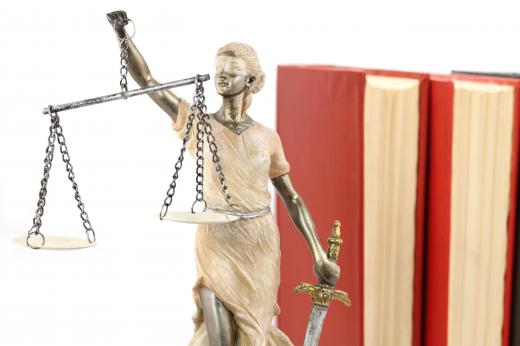Prisons typically range from minimum to maximum security, and are often designed to house criminals who have committed similar types of offenses. The penal institutions of developed countries usually offer better living conditions and greater inmate safety than those found in undeveloped or authoritarian nations. Though most correctional facilities are intended to incarcerate adult, civilian criminals, prison types exist for military personnel, juveniles, violent psychiatric patients, and political agitators. Five basic prison types exist in the U.S. Other countries feature different methods of categorization.
The US Bureau of Prisons is broken into minimum security, low security, medium security, high security, and correctional complexes. Minimum-security institutions are frequently located adjacent to a military base. Prisoners are housed in dorms, and the facility might not even be fenced. Low-security institutions are double-fenced, with more guards per inmate than minimum-security facilities. Prisoners usually live in dorms.

Inmates at medium-security prisons in the US are housed in cells; electronic detection systems and a large number of guards are required. The prisoners are usually violent, like they are at high-security prisons. The latter are usually referred to as US penitentiaries, and contain society’s most dangerous offenders. Virtually every aspect of an inmate’s life is closely controlled and monitored in the most secure of these prisons, commonly called "Super-Max" facilities. Correctional complexes may be of any security level, and are often used for training purposes.

An English prison is usually designated as an A, B, C, or D facility. Prisoners are also assigned a letter, and placed in the corresponding institution. Category A in England is equivalent to maximum security in the US. Category D would resemble a minimum-security prison camp, and might house inmates who are close to release or participating in work-release programs. Many sub-categories exist with the English letter system.

Countries ruled by authoritarian regimes usually have fewer classifications of prisons. Political prisons — such as the gulags of Stalinist Russia — were as likely to hold murderers as they were individuals who spoke out against the government. A number of countries have a two-tier prison system, divided into facilities for those being held for trial and those already convicted. Such as system can be found in Turkey, a country known for having some of the world’s most brutal prison conditions.

The penal systems of most countries offer different facilities for men and women. Lesser-developed countries typically feature prisons where simple containment is the primary goal. The inmates tend to be in charge of daily life at these locations — Peru has several notorious institutions — and the survival rate of all but the most violent of inmates is very low. The function of guards at such institutions is almost strictly that of preventing escape.
